I dedicate this blog post to the memory of Barbara Pitschel, former Head Librarian of San Francisco Botanical Garden's Helen Crocker Russell Library of Horticulture (which is where I knew her from), and a long-time member and newsletter editor of the local California Native Plant Society. Barbara and her husband Roland lived in Bernal Heights. She died last August.
Barbara and Roland's long history in the field of ecological restoration in San Francisco began in 1972 when they became involved in Bernal Heights Park, which is now recognized as one of the city's significant natural areas. They helped in the successful effort to transfer this property, a remnant of the original landscape, from the Department of Public Works, where it was a candidate for development, to the Recreation and Park Department (RPD), where it will be preserved in perpetuity in a natural state. The transfer agreement stipulated that any maintenance work undertaken at this park would be only to restore it to a "pre-1825" condition. The Bernal Hilltop Project was the first ecological restoration project attempted in San Francisco and one of the earliest such efforts in California. She and Roland received the Trust for Public Land Award for 30 years of volunteer park stewardship. Barbara was also a member of the Special Libraries Association and was a charter member of the Society for Ecological Restoration.
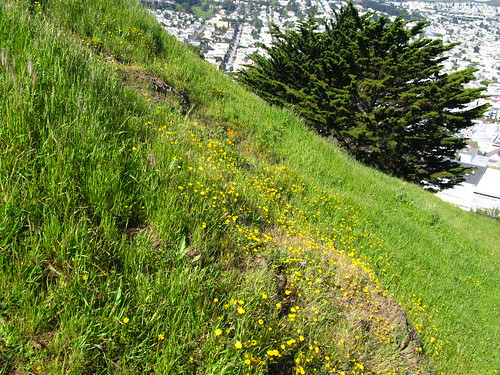
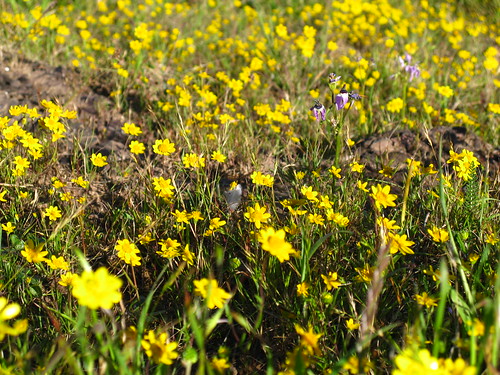
Barbara would be happy to know that populations of goldfields (Lasthenia californica) and buttercup (Ranunculus californica) vastly outnumbered weedy invasive Oxalis pes-caprae this year.
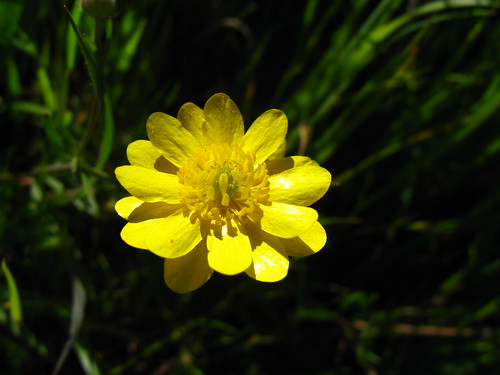
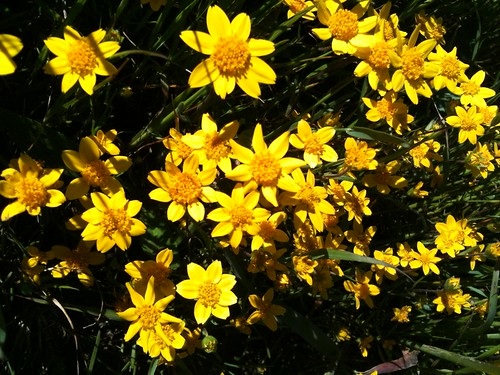
Goldfields especially, just totally off the hook.
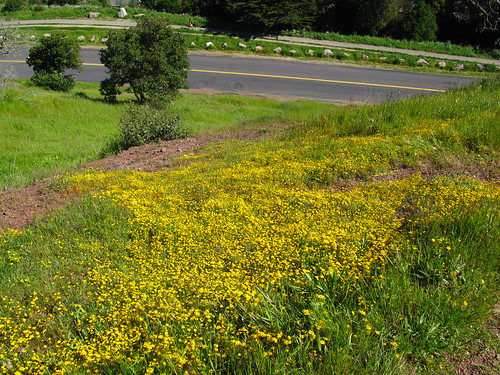
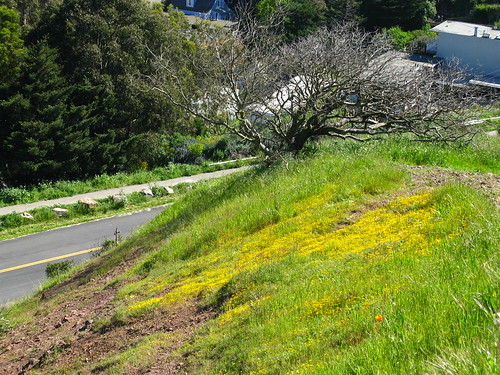
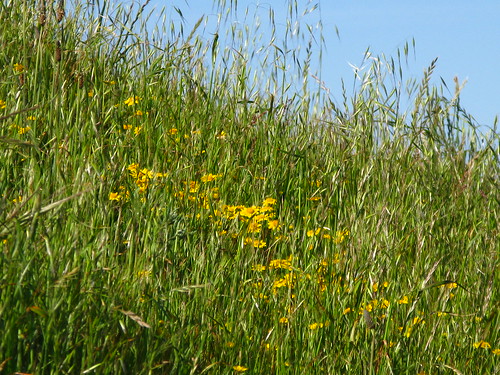
Alas, I'm not hardcore enough to identify species of Lupinus in the field... At the very least Bernal Hill has a few different forms of this very variable pea-family plant making an appearance this year.
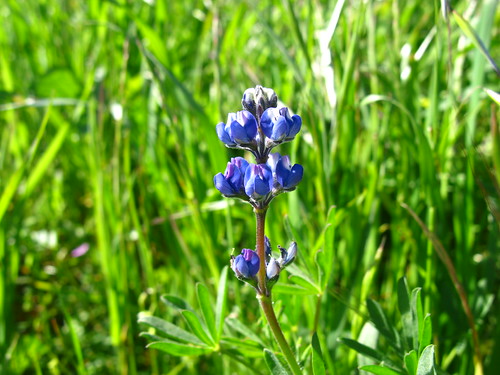
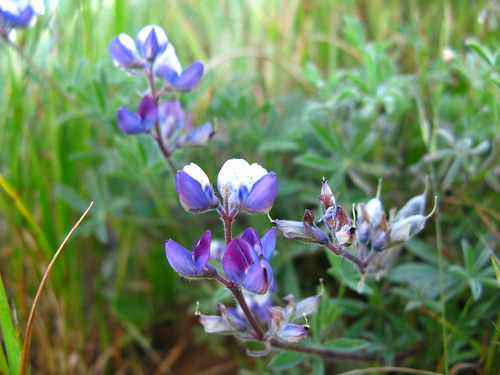
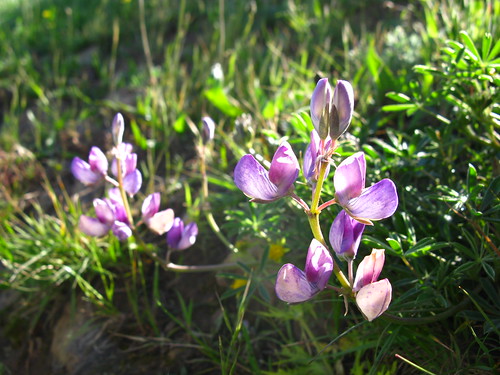
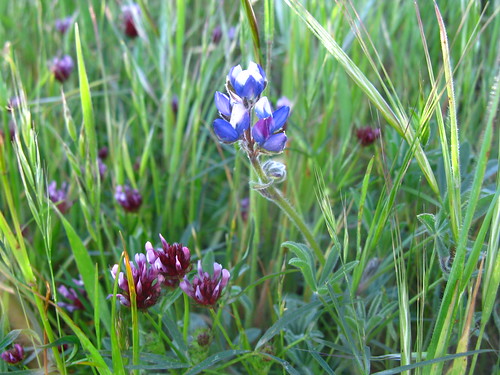
The palmately compound lupine foliage is pretty too.
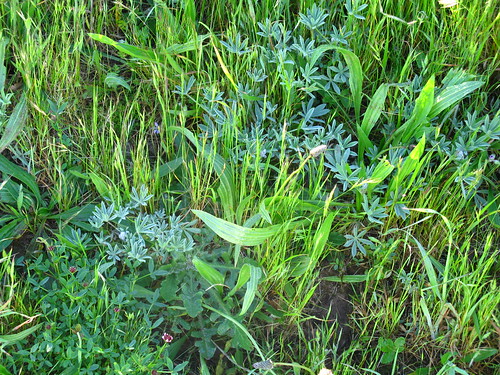
The tomcat clover population seems to grow every year. Trifolium willdenovii?
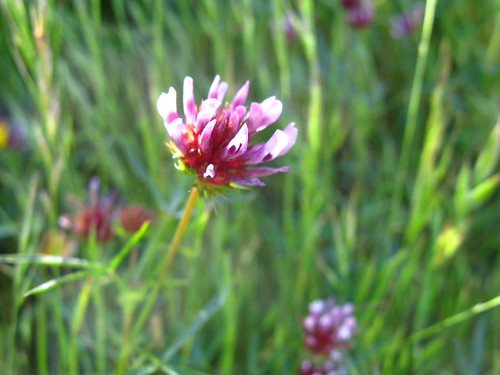
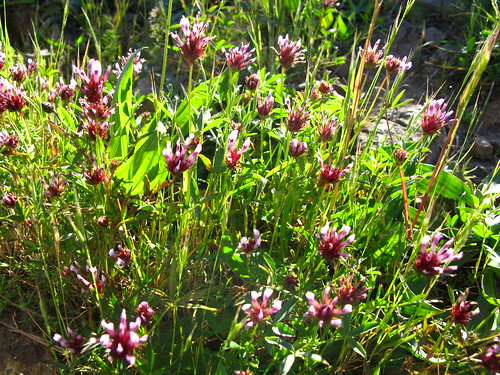
I think there's more Viola pedunculata too:
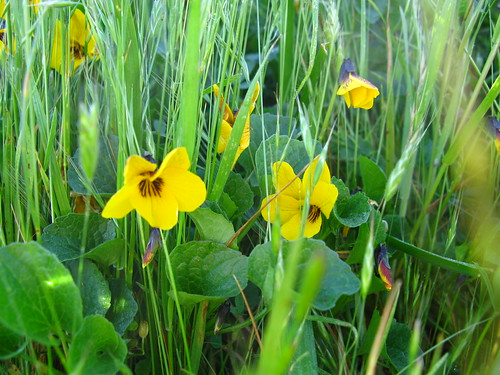
Checkerbloom (Sidalcea sp.):
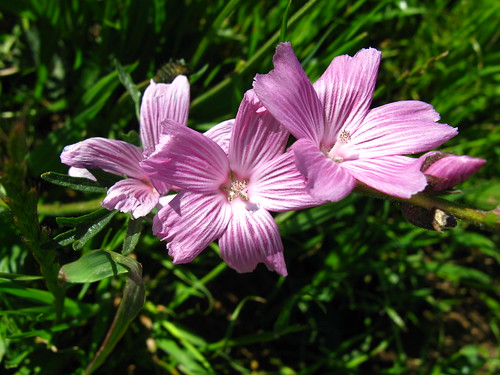
Sidalcea in the grass
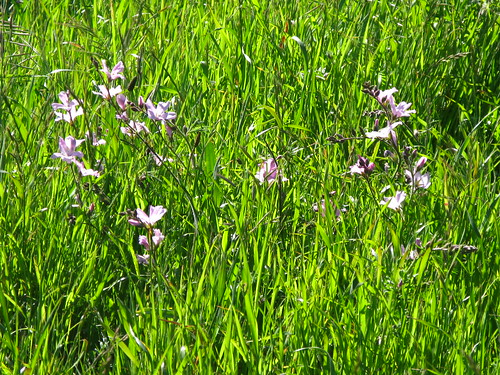
Blue-eyed grass (Sisyrinchium bellum):
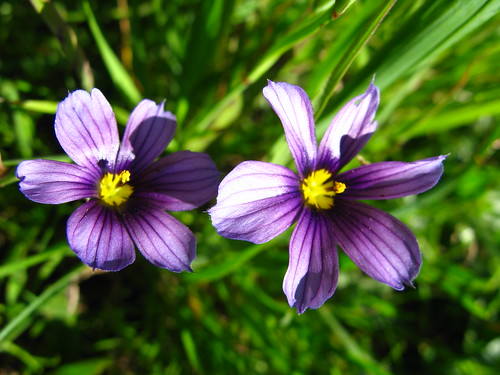
California poppy, coastal form (Eschscholzia californica v. maritima)
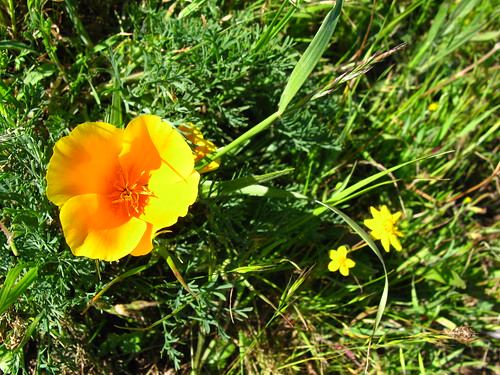
There seems to be a bit more of the pure-orange form this year.

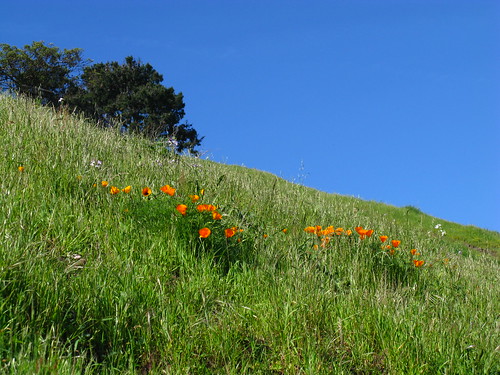
We have the very last of the shooting stars now. (Dodecatheon sp.)
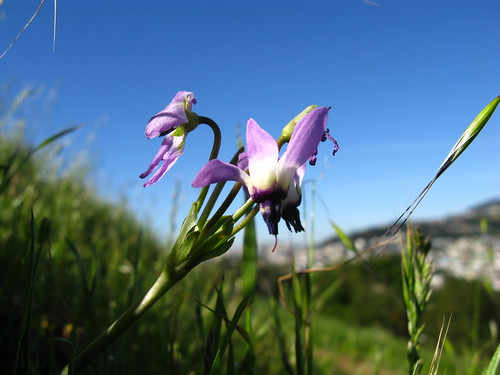
Some lightly tended patches of Salvia spathacea and Iris douglasiana in the southeast corner are going strong.
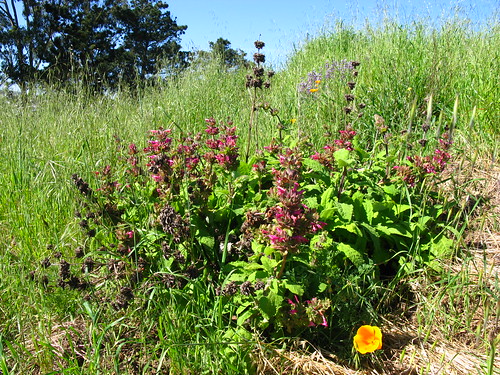
It's clear that someone maintains them with a bit of weeding now and then. Thank you, whoever you are. There's a bit of something else coming up in here now. I'm not sure what it is, so I left it.
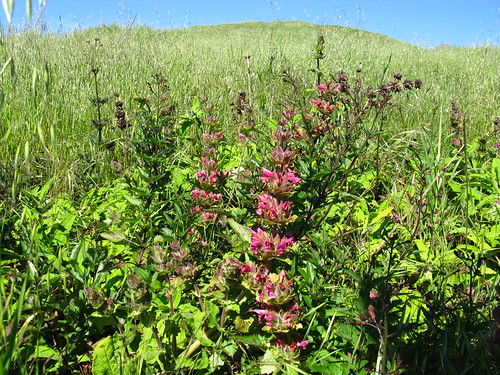
I guess I can't ignore the non-natives too... Chasmanthe and crocosmia grow all over San Francisco and we have them on Bernal Hill too.
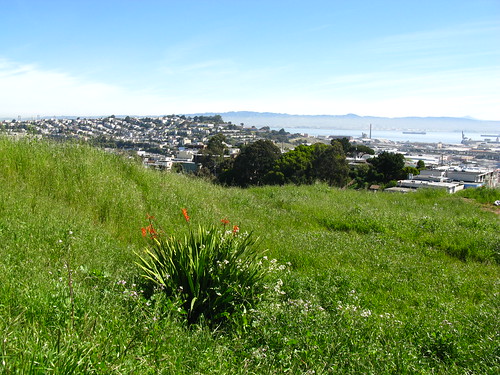
You may recall California is a biodiversity hotspot for wild radish. Besides some of the grasses (about which I know nearly nothing), this is Bernal's most prodigious weed, if you don't mind calling it a weed.
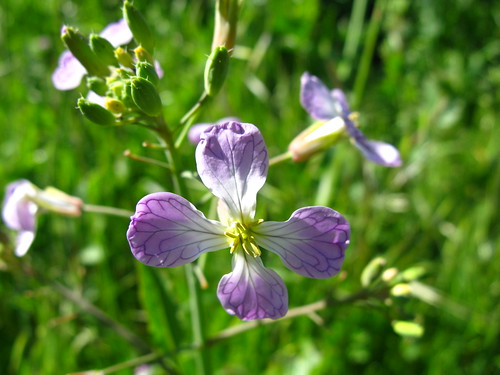
Plantago lanceolata comes to us from England, according to the Google. I don't hate it.
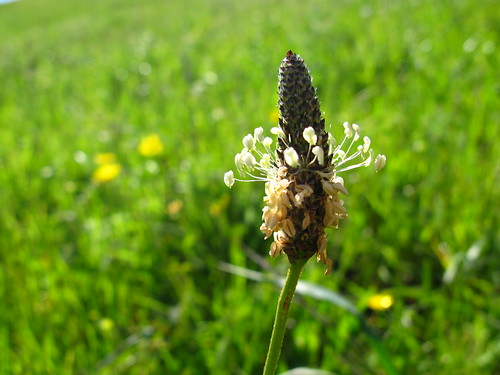
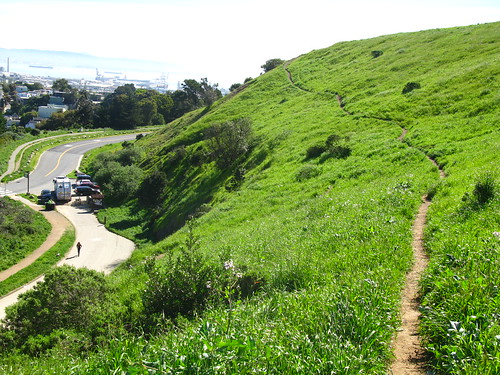

5 comments:
Gorgeous! Anyone who's helped tend this place should be proud.
love the poppies, lupine, clover, and blue-eyed grass is a fave! that wild radish is hard to hate.
In Florida I have seen the blue-eyed grass turn lawns blue. Up here there is no lawn and it gets lost in the hubbub, so I've started collecting it and putting it in one place.
A neighborhood wildflower meadow! I swear, all of you up in SF have such wonderful access to great parks and urban wild places -- thanks to visionaries like Barbara. A nice tribute to her.
Any chance that goldfields or buttercups neutralize Oxalis?
Post a Comment